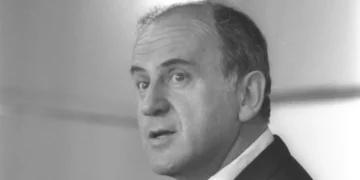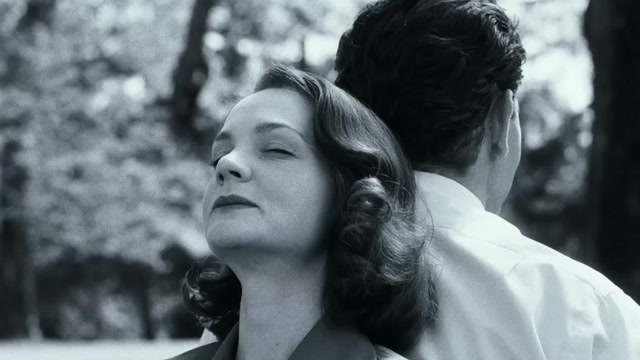In the latest cinematic release, “Maestro,” Bradley Cooper takes on the role of legendary conductor Leonard Bernstein in a film that has stirred both praise and controversy. Despite the movie’s recent headlines for unexpected reasons, Cooper’s performance is hailed as effortlessly charming, complemented by Carey Mulligan’s magnificent portrayal.
The film opens with early scenes shot in black and white, reminiscent of Cooper’s previous success with “A Star is Born.” Like Lady Gaga’s character Ally Maine, Bernstein experiences a meteoric rise, stepping in at short notice for the ailing conductor of the New York Philharmonic. At the tender age of 25, Bernstein, portrayed as a young bohemian, begins to solidify his reputation in the world of classical music.
While prodigiously talented, Bernstein is depicted as a man torn between his ambitions and a laidback bonhomie that sets him apart from his peers. His socializing and commitment to teaching often leave him with insufficient time to fully embrace his musical gifts. The film delves into Bernstein’s complex personality, showcasing his ruthlessness and ambition, juxtaposed with a charming, laidback demeanor that transcends into his personal life.
Cooper’s portrayal of Bernstein touches on the character’s known trait of being desperate for company, going so far as to leave the bathroom door unlocked. Tom Wolfe famously satirized Bernstein as a symbol of “radical chic,” a wealthy New Yorker hosting swanky parties for the Black Panthers. While the film takes a gentler approach than Wolfe’s critique, it doesn’t shy away from highlighting Bernstein’s eclectic social circles, sometimes at the expense of his work.
In its weaker moments, “Maestro” falters with lackluster recreations of Bernstein’s career, echoing scenes readily available in old YouTube clips. Cooper, however, showcases his directorial inventiveness, framing scenes in original and striking ways. Moments of intense conflict between Bernstein and Felicia are notably staged in the bedroom, adding emotional depth to their relationship.
The film incorporates Bernstein’s work, such as scenes from “On the Town,” to unveil details about his life. Cooper’s dedication to authenticity is evident in his portrayal, going to extreme lengths to capture Bernstein’s essence. The film explores the tension within Bernstein, balancing magnetism, volatility, and childlike egotism, yet keeping him strangely elusive.
As the narrative unfolds, it becomes clear that Felicia, portrayed by Carey Mulligan, holds the key to unraveling the sometimes too-shiny facade of Bernstein. The film quotes Bernstein himself, stating, “A work of art does not answer questions. It provokes them,” aligning with the tension and contradictions within the narrative.
Produced by Martin Scorsese and Steven Spielberg, “Maestro” remains a nuanced exploration of Bernstein’s life, despite its occasional shortcomings. Cooper’s inventive direction and Mulligan’s emotionally resonant performance contribute to a film that, while not without flaws, captures the enigmatic essence of a musical maestro.
































